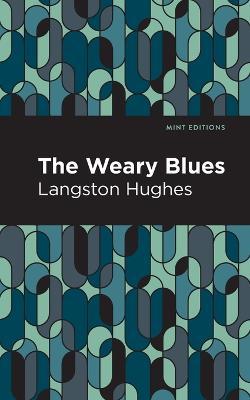The Weary Blues

The Weary Blues
Best known for his vivid and astute portrayals of Black life across the written page, Langston Hughes--born James Mercer Langston Hughes--(1901 - 1967) was a poet, playwright, writer and key figure of the Harlem Renaissance who founded jazz poetry. Raised mostly by his grandmother, Hughes was instilled with a lasting sense of racial pride and a love of books from a young age and though not supported by his father in his pursuit of writing, Hughes would attend Columbia with his father's aid in 1921, before leaving the very next year due to racial prejudice and a desire to focus on his poetry. Hughes first introduced his voice to the world in a 1921 issue of The Crisis where he published, "The Negro Speaks of Rivers." The poem would come to be known as his signature piece and five years later was included in his debut poetry collection, The Weary Blues. Establishing himself as a key player of the Harlem Renaissance, Hughes would be one of a small group of Black intellectuals and artists of the movement who called themselves the Niggerati. Going on to write their manifesto, "The Negro Artist and the Racial Mountain," Hughes' use of the literary medium differed heavily from the artistic aspirations of the Black middle class in that he desired to focus on highlighting the lives of working-class Black people and addressing divisions and prejudices that existed within the Black community itself. In a career spanning over four decades, Hughes would publish an award-winning novel (Not Without Laughter), multiple plays--some in collaboration with Zora Neale Hurston--(Mule Bone and Black Nativity), children's literature (Popo and Fifina) and even an autobiography (The Big Sea); among others in a large volume of work. In his personal life, Hughes maintained lifetime friendships with members of the movement and also is believed to have had private romantic and sexual relationships with men. While Hughes' emphasis on racial pride had begun to fall out of favor with new and coming movements of the younger generation, his contributions to the African-American literary canon and American literature at all could not be denied and as such at the time of his death was--and continues to be--one of the most talented and respected voices of a generation.
"PRP: 43.34 Lei
Acesta este Prețul Recomandat de Producător. Prețul de vânzare al produsului este afișat mai jos.
39.01Lei
39.01Lei
43.34 LeiLivrare in 2-4 saptamani
Descrierea produsului
Best known for his vivid and astute portrayals of Black life across the written page, Langston Hughes--born James Mercer Langston Hughes--(1901 - 1967) was a poet, playwright, writer and key figure of the Harlem Renaissance who founded jazz poetry. Raised mostly by his grandmother, Hughes was instilled with a lasting sense of racial pride and a love of books from a young age and though not supported by his father in his pursuit of writing, Hughes would attend Columbia with his father's aid in 1921, before leaving the very next year due to racial prejudice and a desire to focus on his poetry. Hughes first introduced his voice to the world in a 1921 issue of The Crisis where he published, "The Negro Speaks of Rivers." The poem would come to be known as his signature piece and five years later was included in his debut poetry collection, The Weary Blues. Establishing himself as a key player of the Harlem Renaissance, Hughes would be one of a small group of Black intellectuals and artists of the movement who called themselves the Niggerati. Going on to write their manifesto, "The Negro Artist and the Racial Mountain," Hughes' use of the literary medium differed heavily from the artistic aspirations of the Black middle class in that he desired to focus on highlighting the lives of working-class Black people and addressing divisions and prejudices that existed within the Black community itself. In a career spanning over four decades, Hughes would publish an award-winning novel (Not Without Laughter), multiple plays--some in collaboration with Zora Neale Hurston--(Mule Bone and Black Nativity), children's literature (Popo and Fifina) and even an autobiography (The Big Sea); among others in a large volume of work. In his personal life, Hughes maintained lifetime friendships with members of the movement and also is believed to have had private romantic and sexual relationships with men. While Hughes' emphasis on racial pride had begun to fall out of favor with new and coming movements of the younger generation, his contributions to the African-American literary canon and American literature at all could not be denied and as such at the time of his death was--and continues to be--one of the most talented and respected voices of a generation.
"Detaliile produsului










